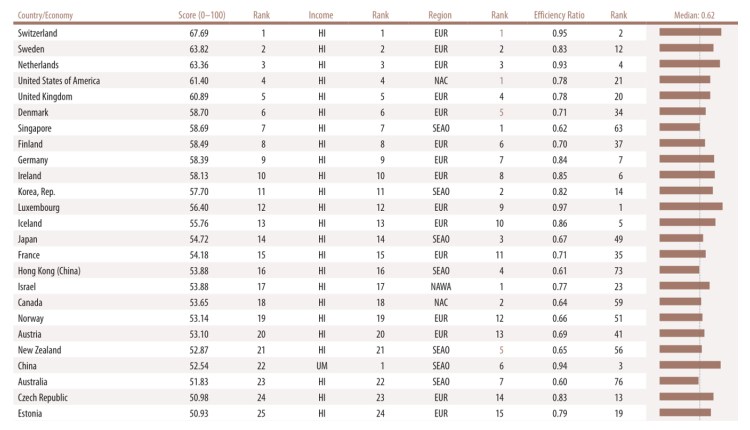The word “innovation” tends to conjure up images of eager start-up entrepreneurs or, alternatively, that of global corporations endowed with R&D budgets the size of small national economies.
But as the world’s biggest buyers of goods and services, governments can play a starring role in the pursuit of knowledge-economy reforms.
Less vivid in our imaginations, but often just as active, governments seek to harness innovation as a means to enhance their country’s position in the new knowledge economy.
Government-driven innovation is not, of course, a new concept. Take France. In the 1960s and 1970s, it pushed for the TGV, the high-speed train that was then a radical idea. Around the same time, the French and British governments absorbed the development costs of the Concorde supersonic airliner.
In 1978, France’s national postal and telecommunications services started designing Minitel, one of the world’s most successful pre-World Wide Web online services.
In 2015, a survey by the OECD found that 80 percent of its member countries took measures to support innovation procurement, with initiatives in sectors as diverse as telemedicine, lighting, traffic management and energy. Of course, innovation itself is on the radar of many more states.
With its Smart Nation initiative, Singapore shines brightest among Asian countries on the 2017 Global Innovation Index (GII). In the MENA region, the United Arab Emirates defined innovation as one of the pillars of its transformation from an oil-based economy to a knowledge-based one. Case in point, in October 2017 the UAE appointed the world’s very first Minister for Artificial Intelligence.
Pushing innovation in smaller, domestic firms
The Gulf States are using their sizable oil & gas revenues to develop innovative sectors such as aerospace, semi-conductors and renewable energy, anchored around high-profile foreign investments.
In our working paper, “The Role of Demand on Innovation: Evidence from a Resource Rich Economy”, Elif Bascavusoglu-Moreau and I look at the particular case of Abu Dhabi and show that the Emirate could leverage public procurement to further spur innovation, especially among smaller, domestic firms.
We examined the data from the 2012 Abu Dhabi Innovation Survey (ADIS), a measure of innovation performance based on international standards. A total of 480 firms indicated whether they had introduced any new or significantly improved goods, services and/or processes in the four years prior.
They were also asked about their knowledge flows and whether their innovations had been borne out of private (B2B or B2C) or public demand (i.e. government contracts and tenders).
Amid other findings, our data showed that the smaller the…
Source link : How The Next Heroes of Innovation could be Governments by Insead Knowledge


